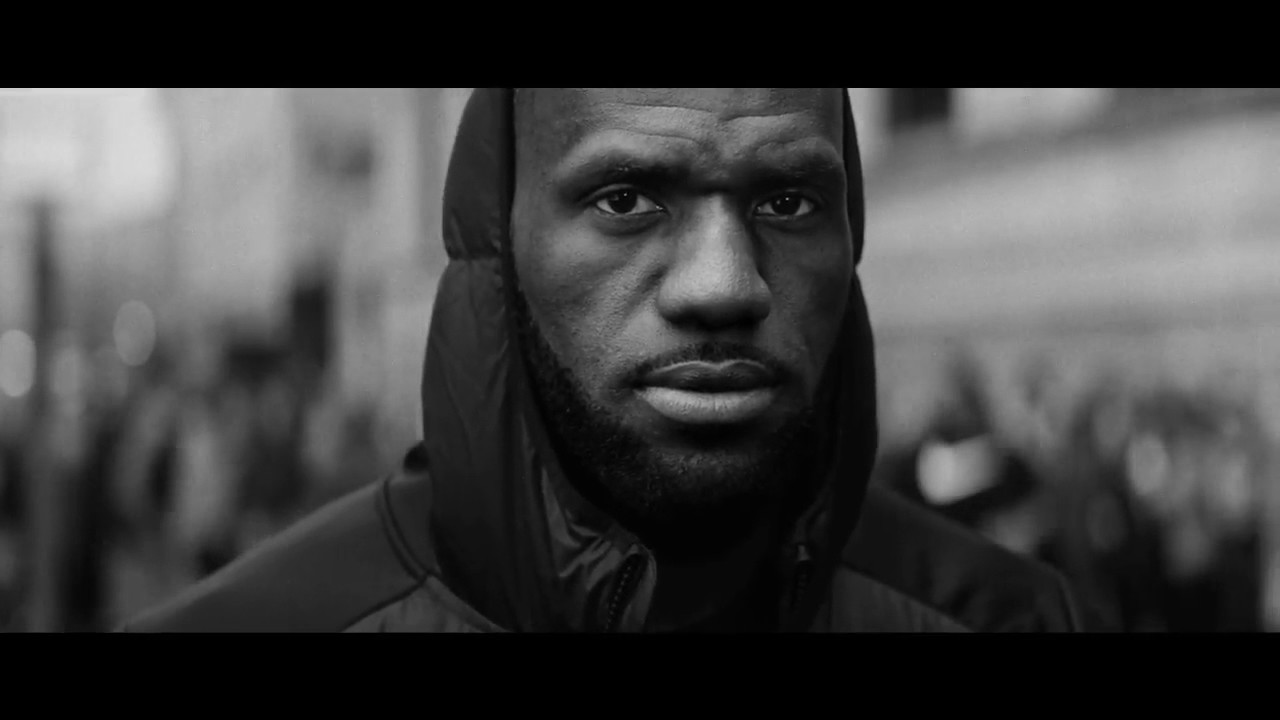- advertisements geared towards men
- Old Spice’s Viral Video Campaign: “The Man Your Man Could Smell Like”
- Philips’ Advertisement: “Shouting Men” Defies Societal Norms
- Dr. Squatch Soap Company’s Entertaining Video Marketing
- Promoting The Benefits Of All-Natural Soap
- FAQ
- What ads are targeted at men?
- How do ads target men?
- How are men represented in advertising?
- What kind of ads do men like?
From suave superheroes to charismatic cowboys, modern advertisements geared towards men have broken free from conventional norms, embracing creativity and diversity like never before.
Brands like Old Spice, Philips, Dr.
Squatch, Gillette, and Dollar Shave Club have unleashed a wave of captivating campaigns that are bound to leave you intrigued and craving for more.
Step into a world where masculinity meets innovation as we delve into the fascinating realm of men’s advertising.
| Item | Details |
|---|---|
| Topic | The psychology behind advertisements geared towards men: Exploring tactics |
| Category | Ads |
| Key takeaway | From suave superheroes to charismatic cowboys, modern advertisements geared towards men have broken free from conventional norms, embracing creativity and diversity like never befo |
| Last updated | December 29, 2025 |
advertisements-geared-towards-men">advertisements geared towards men
Advertisements geared towards men have evolved over the years to include more diverse and innovative approaches.
Brands like Old Spice have successfully targeted men’s body wash towards women through their viral video campaign, “The Man Your Man Could Smell Like.” Philips, on the other hand, prioritizes individuality and the best personal choices in their “Shouting Men” advertisement, challenging societal standards of masculinity.
Dr.
Squatch Soap Company utilizes entertaining and informative video marketing campaigns, focusing on the benefits of all-natural soap and utilizing social proof.
The advertising landscape for men’s products is continuously changing, with examples like Gillette’s “The Best Men Can Be” campaign and Dollar Shave Club’s viral ad.
This increase in diversity and creativity in advertisements for men’s products provides exciting opportunities, especially on International Men’s Day, for more innovative and engaging campaigns.Key Points:
- Advertisements geared towards men have become more diverse and innovative over time.
- Old Spice’s viral video campaign successfully targeted women with their men’s body wash.
- Philips challenges societal standards of masculinity in their “Shouting Men” advertisement.
- Dr. Squatch Soap Company focuses on the benefits of all-natural soap in their video marketing campaigns.
- Gillette and Dollar Shave Club have both created successful and viral ad campaigns for men’s products.
- The increase in diversity and creativity in men’s product advertisements presents opportunities for innovative campaigns on International Men’s Day.
Check this out:
💡 Did You Know?
1. Before the mid-20th century, advertisements targeted towards men often depicted them as responsible for household chores such as laundry and cleaning, as it was believed that these tasks required strength and stamina.
2. In the early 1900s, tobacco companies strategically placed their advertisements in popular men’s magazines like “Esquire” and “Gentleman’s Quarterly” to associate smoking with a sophisticated and masculine lifestyle.
3. The iconic Marlboro Man, a cowboy featured in Marlboro cigarette advertisements, was actually played by several different actors. The campaign successfully rebranded Marlboro cigarettes from being marketed towards women to becoming a symbol of ruggedness and masculinity.
4. During the 1950s, advertisements for grooming products aimed at men often emphasized the need for men to appear youthful and avoid signs of aging. Phrases like “stay young” and “reverse the clock” were commonly used to persuade men to purchase anti-aging creams and lotions.
5. In the 1990s, Calvin Klein released a controversial perfume advertisement for their fragrance “Obsession for Men,” featuring Dutch model, Mark Vanderloo. The commercial showcases Vanderloo shirtless, appearing as if he has just had an intimate encounter. Due to its suggestive nature, the ad received mixed reviews but managed to generate significant buzz and sales for the fragrance.
Old Spice’s Viral Video Campaign: “The Man Your Man Could Smell Like”
In the world of marketing, creating a viral video campaign is the golden ticket to success. Old Spice, a brand known for its men’s grooming products, hit the jackpot with their campaign titled “The Man Your Man Could Smell Like.” The commercials featured a confident and charming man who takes viewers on a whirlwind tour, showcasing the amazing benefits of Old Spice body wash.
But what made this campaign so successful?
The video campaign targeted men’s body wash toward women, taking a unique approach that caught the attention of both genders. By featuring an attractive man who appeals to women, Old Spice tapped into a demographic that typically influences men’s purchase decisions. This clever tactic of appealing to women’s desires for their partners was a stroke of genius. It created a buzz and generated conversations, bringing the brand into the spotlight.
Moreover, the video campaign utilized humor and quick-paced storytelling, making it entertaining and memorable. Through catchy phrases like “I’m on a horse” and “look at your man, now back to me,” Old Spice built a distinct brand persona that resonated with viewers. By cleverly positioning their product as a symbol of manliness that could attract women, Old Spice connected with their target audience and achieved a viral marketing success story.
Philips’ Advertisement: “Shouting Men” Defies Societal Norms
Philips, known for their electronics and appliances, surprised audiences with their unconventional advertisement titled “Shouting Men.” This campaign aimed to challenge traditional masculinity-driven ads and encourage men to be themselves. It emphasized that using Philips products was a choice based on personal preference, rather than conforming to expectations of masculinity.
The advertisement featured men of diverse backgrounds and interests, all joyfully shouting and expressing themselves. It conveyed the message that there is no singular definition of masculinity and that men should embrace their individuality. By challenging social expectations, Philips positioned themselves as a brand that understands and supports men’s freedom to be who they truly are.
Fresh tips added for advertisers this week.
This refreshing approach in men’s product advertising garnered attention and praise. It resonated with a growing segment of consumers who value authenticity and reject rigid stereotypes. By defying societal norms and embracing diversity, Philips successfully connected with their target audience on a deeper level, ultimately boosting their brand image and sales.
Dr. Squatch Soap Company’s Entertaining Video Marketing
Dr. Squatch Soap Company has revolutionized the men’s grooming market through their engaging and informative video marketing campaigns. Through the power of storytelling, this up-and-coming brand has captivated their audience, leveraging witty narratives and visually appealing content to create a truly captivating experience.
Not only does Dr. Squatch promote their products, but they also educate consumers about the benefits of all-natural soap. They emphasize the harmful chemicals found in mainstream soaps and the positive impact that using natural ingredients can have on one’s skin and overall health. This approach positions Dr. Squatch as a healthier and more sustainable choice within the men’s grooming market.
Furthermore, Dr. Squatch incorporates social proof into their videos by featuring testimonials and customer experiences. This strategy builds trust and credibility, allowing potential customers to witness real people enjoying the benefits of Dr. Squatch products. By seamlessly combining entertainment, education, and social proof, Dr. Squatch has effectively established its unique position in the highly competitive men’s grooming industry.
- Engaging and informative video marketing campaigns
- Witty narratives and visually appealing content
- Promotion of all-natural soap and its benefits
- Emphasis on harmful chemicals in mainstream soaps
- Positive impact of natural ingredients on skin and overall health
- Utilization of social proof through testimonials and customer experiences
- Trust and credibility building
- Carved out a niche in the competitive men’s grooming industry
Promoting The Benefits Of All-Natural Soap
In today’s health-conscious society, consumers are increasingly concerned about the products they use on their bodies. This trend is particularly notable in the men’s grooming market, where there is a growing demand for all-natural and chemical-free alternatives. Brands like Dr. Squatch Soap Company have recognized this shift in consumer preferences and incorporated it into their advertising strategies.
By promoting the benefits of all-natural soap, brands like Dr. Squatch appeal to individuals who prioritize their well-being. All-natural soaps are free from harmful chemicals like parabens and sulfates, which can cause skin irritations or allergies. These products often contain nourishing ingredients like essential oils and natural moisturizers, providing a gentler and more nourishing experience.
Furthermore, advertising the benefits of all-natural soap aligns with the global movement towards sustainability and environmentally friendly practices. By choosing natural products, consumers contribute to reducing their ecological footprint. This message resonates with socially conscious individuals who seek products that are not only good for them but also for the planet.
Overall, promoting the benefits of all-natural soap creates a compelling marketing narrative. It appeals to health-conscious consumers, emphasizing the positive impact of using natural ingredients on their skin and the environment.
FAQ
What ads are targeted at men?
In today’s advertising landscape, there are numerous campaigns specifically targeting men. One such example is the famous Old Spice campaign, “The Man Your Man Could Smell Like.” This iconic ad series features a charismatic and hyper-masculine character who humorously promotes Old Spice’s products, making them appealing to male consumers seeking a confident and sophisticated persona. Similarly, Philips created the “Shouting Men” campaign, captivating audiences with loud, action-packed advertisements showcasing innovative male-oriented technology. These ads utilize a combination of excitement and masculinity to attract male viewers who are interested in cutting-edge gadgets and electronics. Lastly, Dr. Squatch Soap Company has taken a different approach, focusing on men’s grooming products with a rustic and natural appeal. Their commercials highlight the importance of personal care with a rugged twist, making them appealing to men looking for high-quality, masculine grooming options.
How do ads target men?
Ads target men by tailoring the content to be more appealing and relatable to their preferences. This involves creating content that speaks directly to men, incorporating humor, directness, logic, and crispness. By understanding the male audience’s preferences and mindset, marketers can shape the brand’s design language accordingly, ensuring that the advertisement resonates with men on a deeper level. Furthermore, studying statistics and data on consumer behavior allows marketers to identify trends and preferences specific to men, enabling them to effectively target this demographic with tailored advertising campaigns.
How are men represented in advertising?
In today’s advertising landscape, the representation of men has undergone significant changes. While traditional portrayals often depicted men as powerful, strong, and competitive, contemporary advertising now aims to capture the complexity and diversity of male experiences. Men are no longer exclusively presented as dominant figures but are also depicted as nurturers, friends, and sensitive individuals capable of forming emotional connections. Advertisements now strive to break away from clichéd stereotypes and present men in more relatable, authentic, and diverse ways, reflecting the evolving societal understanding of gender roles and expectations.
What kind of ads do men like?
Men prefer TV ads that provide them with useful information about new products and services, as well as relevant details about discounts and bargains. They appreciate advertisements that show meaningful information about how other consumers use the product. Additionally, a notable percentage of men find humor in TV commercials, with almost half stating that they find them funny.
Programmatic Advertising • Native Ad Network • Performance Marketing Tips • Buy Traffic











